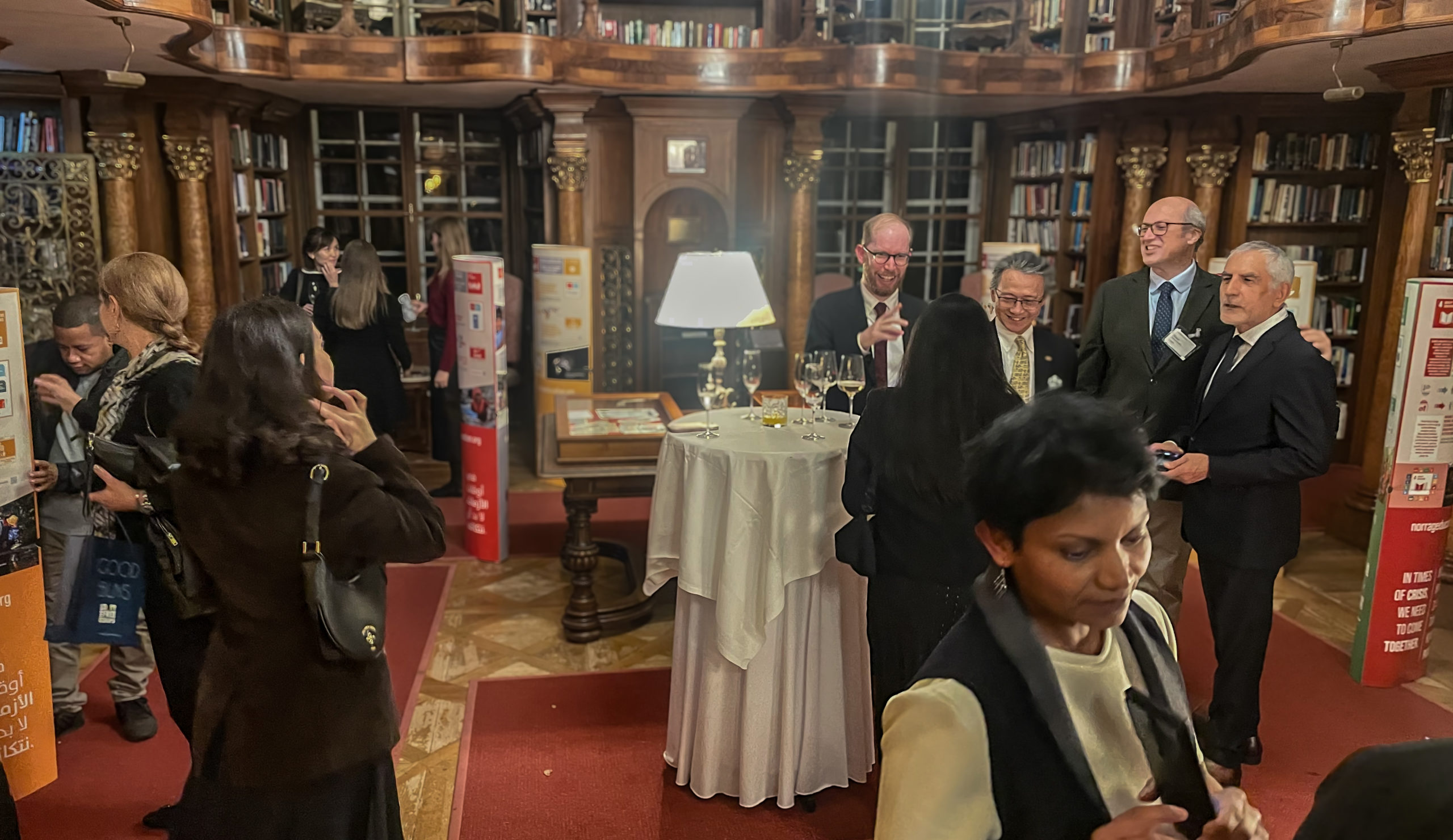Event Highlights: Salzburg Global, Education for Sustainable Development
Reimagining Education: Global Citizenship, Pluralism, and Purpose in the 21st Century Workshop at Salzburg Global, 30 Oct–3 Nov 2025.
GCE empowers students to become not just informed learners, but respectful, active participants in a diverse and shared world. Salzburg Global
Moira Faul, NORRAG Executive Director, participated in the “Reimagining Education: Global Citizenship, Pluralism, and Purpose in the 21st Century,” part of the “Education for Tomorrow’s World” series at Salzburg Global that seeks to build a shared vocabulary and practical tools for embedding pluralism, civic agency and sustainability across curricula. The programme was hosted by Salzburg Global, in partnership with organizations such as the Ban Ki-moon Centre for Global Citizens, the TUI Care Foundation, the University of Calgary, and York University’s UNESCO Chair.
The program convened 35 educators, policy-makers, researchers, youth leaders and innovators for a highly interactive, residential seminar at Schloss Leopoldskron focused on how Global Citizenship Education (GCE) can respond to the interlocking crises of climate, inequality, democratic backsliding and digital misinformation.
The event opened with an International Forum on Education for the Post-2030 Agenda, organized in partnership with the Ban Ki-moon Centre and the Republic of Korea’s foreign ministry. Panels “Education for a Complex Future” and “Future Opportunities & Transformation” brought speakers from UNESCO, SDSN/Global Schools, youth delegates and innovators (including Amanda Abrom, Kehkashan Basu, Gloria Figueroa, Catherine Odora Hoppers (who has also been NORRAG Senior Fellow), Dominic Regester). Discussions focused on pluralism, teacher support, AI and green jobs, and how to get GCE into national policy and the post-2030 agenda.
Following the Forum, participants spent 3.5 days in co-created workshops, case-study roundtables and design labs to convert ideas into concrete curricula, policy recommendations and partnership prototypes. The program took participants through a series of co-created modules on curriculum and pedagogy transformation; teacher and leadership capacity; equity and inclusion; innovation, technology and purpose; and system resilience and resources. The program concluded with a full-day brainstorming session. In a working group, the GSP team focused on tangible actions that the education community can take to transform education today and in the post-2030 agenda.
Moira participated in the “Beyond 2030” working group, comprising initial partners: Salzburg Global & Salzburg Global Fellows (Christopher Lee, Katerina Lambrinou, Dominic Regester), NORRAG (Moira Faul), SDSN – Global Schools (Amanda Abrom), York University (Charles Hopkins & Katrin Kohl), Medellín Challenge (Gloria Figueroa), Teach for Bulgaria (Yuliya Mishkova). This group will work towards mobilising the role of education, higher education and youth in developing the next global policy agenda, beyond 2030.
NORRAG has already published an article in a Compare Forum discussing the role of higher education in developing the Beyond-2030 agenda, with Elizabeth Buckner | Tristan McCowan | Oakleigh Welply | Jeremy J. | Fatima Denton. You can participate in a survey on the vital role of HE in envisioning a potential post-2030 framework coordinated the Global Higher Education Symposium.
Outcomes and next steps emphasized follow-up action and collaboration, holding momentum toward the post-2030 process: producing actionable recommendations for UNESCO and other fora, amplifying youth and Global South expertise, and translating GCE into teacher training, assessment and system supports.
Full details of the programme and participants can be found on the Salzburg Global website
Programme goals
- To develop new ideas around the centrality of Global Citizenship Education as a response to global challenges in the second quarter of the 21st century
- To explore pluralism as a foundational principle for civic learning and coexistence
- To share and develop practical strategies for integrating GCE across disciplines and school contexts
- To build a network of educators committed to advancing justice, sustainability, and civic values through education
- To formulate policy, practice, and partnership recommendations that can inform broader educational change and support the post-2030 agenda
Guiding questions
- What does it mean to educate for global citizenship in a time of crisis and complexity?
- How can educators nurture pluralism, empathy, and civic responsibility in divided societies?
- In what ways can local teaching practices meaningfully connect with global issues?
- What institutional supports are needed to embed GCE in schools and systems?
- How can educators collaborate across borders and sectors to drive transformational change?
- How can we cultivate critical thinking, empathy, and pluralism in increasingly polarized societies?
- What structures and supports are needed to sustain Global Citizenship Education in schools and systems?
- How can educators build alliances – across sectors and borders – to advance justice, sustainability, and peace through education?

